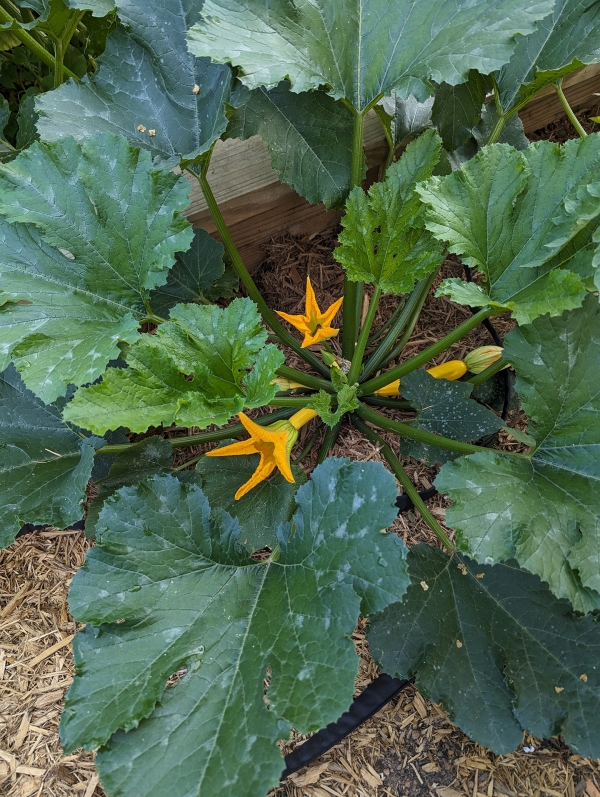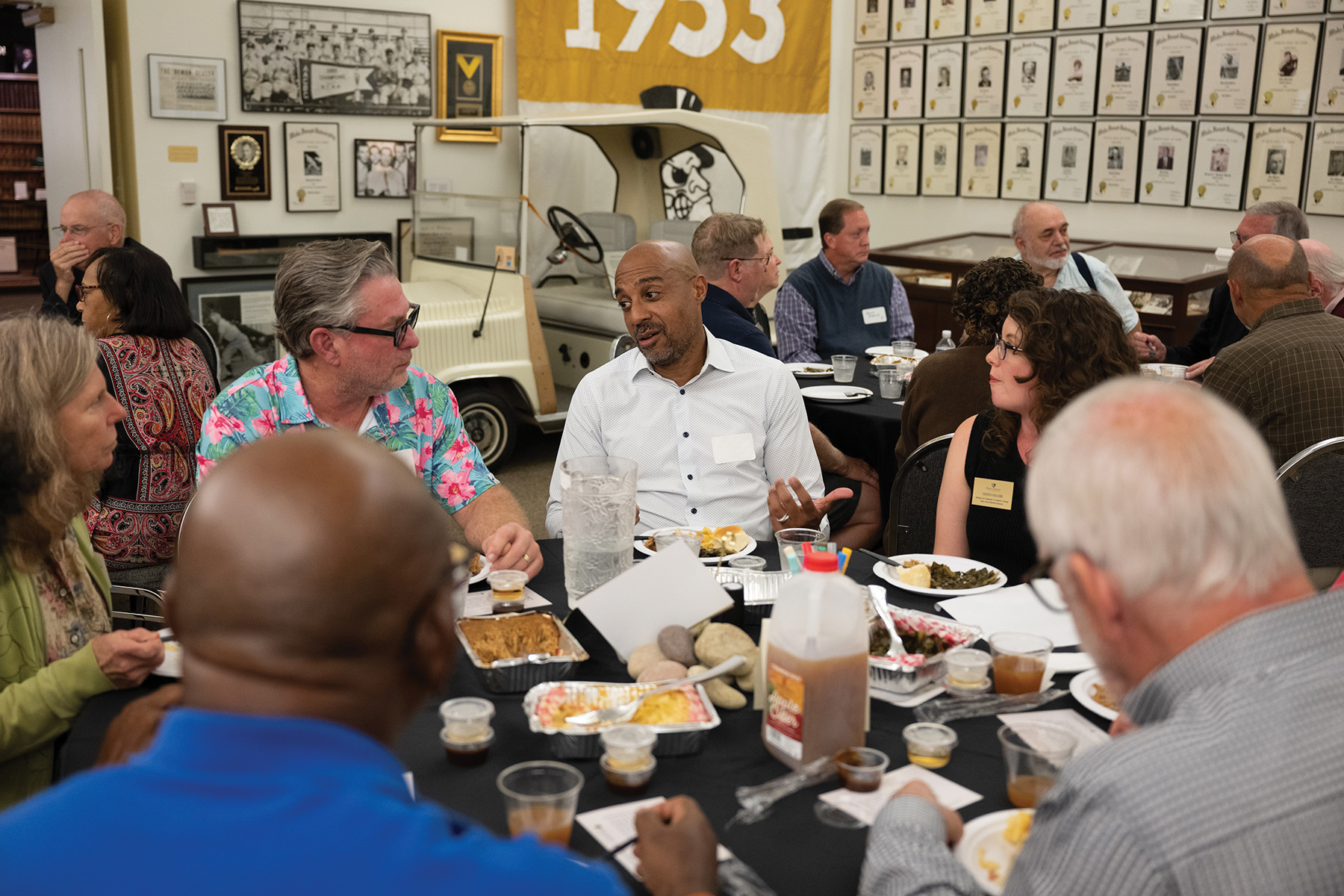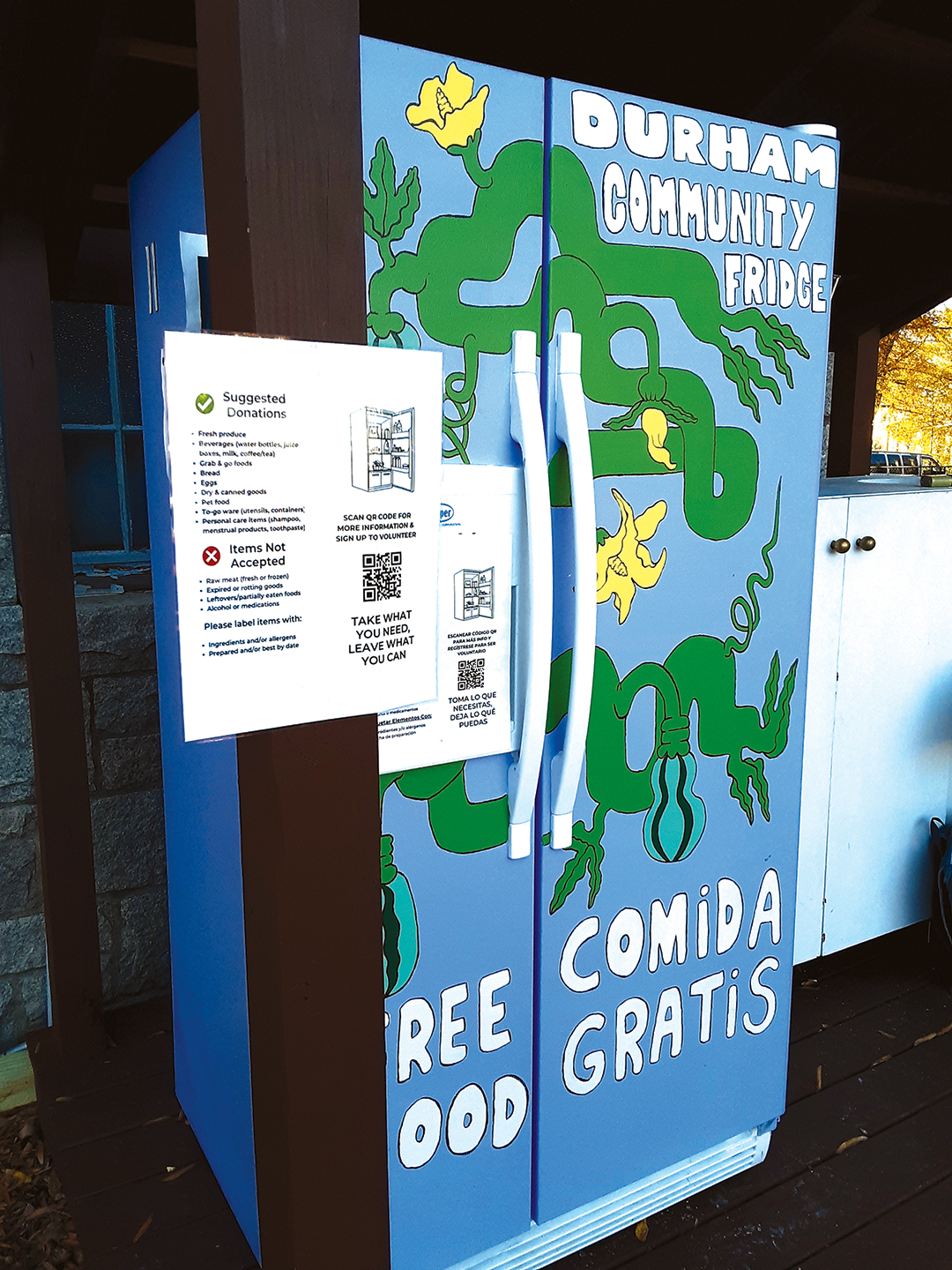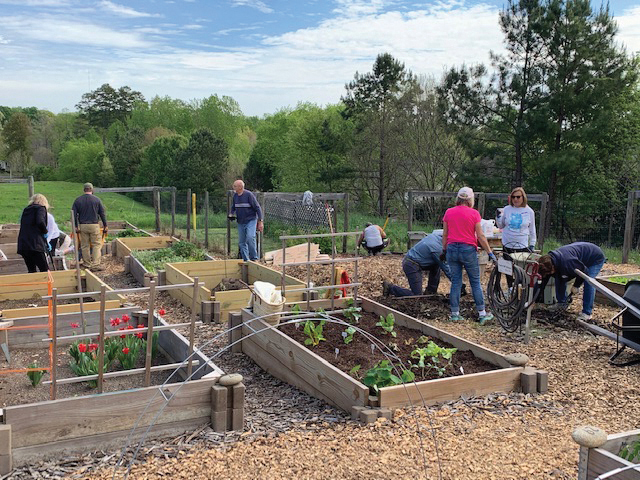Disciple: Feeding Body and Soul

As families continue to struggle with the lingering economic effects of the COVID-19 pandemic and inflation, ministries that meet basic needs—including feeding ministries—remain in high demand. While churches across the Episcopal Diocese of North Carolina provide nutrition and care by hosting food pantries, donating canned goods and providing backpacks full of snacks to local schools, below we’ve highlighted some of the most unique feeding ministries throughout the diocese. While the ministries themselves vary greatly, each proves the old wisdom that the easiest way to build relationships is through sharing food.
[Image: Yellow squash from this summer’s crop in the Chapel of Christ the King’s edible landscape. Photo by Summerlee Walter]
St. John’s, Wake Forest
The mission of Wake Forest Community Table “is to connect members of [the] community to the essential resources of food and personal care items and to each other through community gatherings. Gathering diverse members of [the] community for food, connection and education, [the organization] seeks to transform the systems that necessitate the services [it] provides.” In 2022, Wake Forest Community Table served 7,421 meals, including thousands of pounds of fresh produce from two community gardens, at two locations in Wake Forest, and it hosted four community gatherings that brought together between 60 and 80 diverse community members to learn history, share stories and think about the systems that cause the need in the community. In October 2022, the Wake Forest Community Table completed all of the requirements to become an independent 501(c)3 and in November held its first official board meeting.
“It is more than a meal program; it has built relationships between diverse members of our community and encouraged both food secure and insecure community members to join together in understanding the cause of inequity in our community and country and to advocate in small and large ways to build beloved community,” said Joy Shillingsburg, then-executive director of the ministry.

[Image: On October 13, 2022, community members gathered as part of the Wake Forest Community Table to discuss the root causes of food insecurity in the community. Photo by Joy Shillingsburg]
Chapel of Christ the King, Charlotte
Since 2021, the Chapel of Christ the King has been feeding people in the community through the edible landscape on the church’s property. Situated in the midst of a neighborhood in transition, Christ the King’s edible landscape invites neighbors from both the older, lower-income homes and the higher-end developments that are springing up around the church to enjoy the garden and build relationships.
Through a City of Charlotte Placemaking Grant and a Mission Endowment Grant from the diocese—and with help from the NC State University county extension; the City of Charlotte; UNC-Charlotte; Holy Comforter, Charlotte; and Trees Charlotte—the church installed raised garden beds, fruit trees and blueberry bushes, and an accessible deck for outdoor worship.
Abundant Life Ministries
The result of community canvassing, relationship-building and discernment at Holy Spirit, Greensboro, Abundant Life began in 2019 as a health outreach ministry to economically and medically vulnerable people in north Greensboro. During the COVID-19 pandemic, volunteers distributed grocery boxes to approximately 60 households each week, which, with the return to in-person gatherings, transformed into a Monday afternoon pop-up fresh food market and pantry.
One of the highlights of Abundant Life, however, is the weekly Tuesday evening free community meal, during which neighbors eat together, access medical care from a nurse with the Cone Health Congregational & Community Nurses program, pick up diapers from the diaper pantry, and share prayer circles and Bible studies.

St. Joseph’s, Durham
St. Joseph’s is home to Durham’s first community fridge. Installed on October 29, 2022, by a local mutual aid group, the Durham Community Fridge aims to mitigate food waste by providing open access to food. Anyone can contribute produce, dairy products, homemade meals, beverages and more. The fridge also receives consistent weekly donations from local businesses and nonprofits, including Red’s Quality Acre, the Durham Co-op Market, Iglesia Presbiteriana Emanuel, Redstart Foods, Geer Street Learning Garden and Happy Dirt. Next to the fridge is a cabinet full of pantry goods and toiletries. Because the program is run by a mutual aid society, there are no barriers to donations or access.
The community fridge is an excellent complement to St. Joseph’s long-running feeding ministry: the thrice-weekly community breakfast the church has hosted in various iterations since 2007.
[Image: The community fridge outside of St. Joseph’s. Photo by Paul Siceloff]
St. Bartholomew’s, Pittsboro
Growing out of the 14-year Community Lunch run by St. Bartholomew’s, the Chatham Chuckwagon began during the COVID-19 pandemic. Churches from five different denominations rotate the weekly responsibility of planning a recipe, picking up donated ingredients, and preparing, sealing and freezing 200 or so vacuum-packed meals. The large portions easily serve two people, and a family of five will receive three or four freezer packs during the weekly Thursday afternoon pick up.
Farmers, restaurants and other groups donate protein and baked goods, and the churches share freezer space and kitchens. “I might come in and everybody else is in the kitchen cooking, and I hear everybody laughing and having fun, and that’s a beautiful thing,” Terry Transue, who leads the ministry, said. “And, then during the distribution, the same thing’s happening.”
El Buen Pastor, Durham
In late 2016, El Buen Pastor was named a Jubilee Ministry by The Episcopal Church in recognition of its work to “empower the poor and oppressed in [its] community by providing direct services such as food, shelter and healthcare, and also by advocating for human rights.” One way the church serves its community is by distributing truckloads of fresh produce, meat and pantry goods donated by the Food Bank of North Carolina each month during its first Saturday food distribution. The ministry started 16 years ago in response to neighbors who came to the church hungry and seeking help and has grown to serve more than 150 families each month.
 Community Gardens
Community Gardens
Across the diocese, churches of all sizes have planted community gardens. While the goals of growing delicious, healthy food and cultivating relationships are shared, implementation varies from church to church. Some, like St. Mark’s, Wilson, broke ground for the first time this year. Others, like Nativity, Raleigh, where recapturing atmospheric carbon through composting is a focus, have been stewarding plots of land for more than a decade. The community garden at Galilee Ministries of East Charlotte allows refugees to grow familiar foods from their homelands. At the Advocate, Chapel Hill, everyone works together to tend the 600 square feet of garden beds. St. Alban’s, Davidson, rents the 52 beds in its SEEDS Community Garden to both parishioners and members of the community, but everyone shares responsibility for maintaining the common areas during biannual work days.
"There’s such a broad outreach,” Ginger Knudson, who chairs the SEEDS board, said, “so many different people who you might not meet normally, you will meet in a garden.”
[Image: The SEEDS garden at St. Alban’s, Davidson, produces vegetables and fellowship. Photo courtesy of Ginger Knudson]
Tags: North Carolina Disciple
